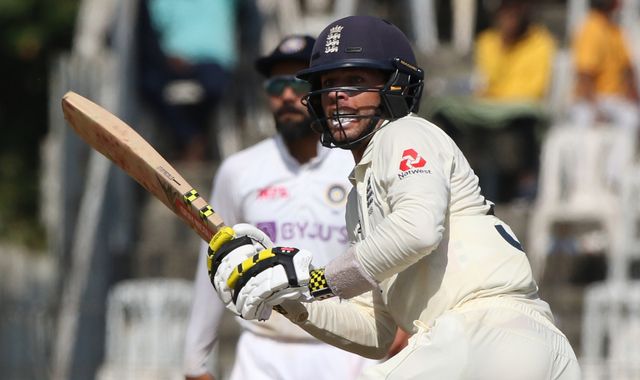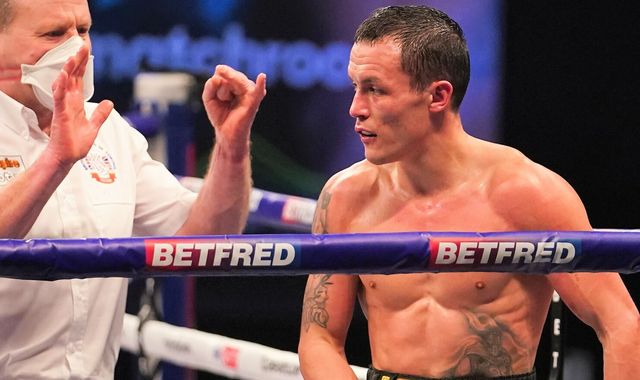World Cup: Russia facing battle to keep violent ‘ultras’ under control
Written by News on 12/06/2018
The Russian ‘ultra’ – or football hooligan – has acquired an almost mythical infamy since the European Championships in 2016.

Lean, mean fighting machines – muscles honed from a mix of mixed martial arts and weekends of intensely violent fisticuffs in the woods – ready to prove their masculine and national superiority given half a chance.
British hooligans, be warned.
That has been the dominant narrative ever since around 150 Russian ultras decimated a much larger group of England fans at the European Championship Final in Marseille two years ago.
And that narrative is not far off. Russian ultras have not gone away and are easy enough to spot.
Go to any club football match and the hooligan firms remain at the front of the stands, banners unfurled, a sprinkling of prison tattoos in a sea of inked up arms.
Sky News attended the Moscow derby between Spartak and Dynamo on the last day of the Russian Premier League season and two of the more notorious Spartak-linked firms – Fratria and the Gladiators – fronted the stands on our side of the pitch.
We did not notice at the time, but looking back over what we had filmed we heard an unmistakable chant of ‘”Hitler Jugend, SS” as one group did repeated Nazi salutes.
It is not hard to detect the flavour of the far right in Russian football. But while easy to spot, it is mighty hard these days to get them to speak on camera.
There has been a deliberate effort ahead of the World Cup to clamp down on the ‘ultra’ scene and silence fighting talk.
A BBC documentary last February – Russia’s Hooligan Army – showed one firm promising to unleash a “festival of violence” on British fans. Another well known member of the Gladiators implied Russia’s hooligans were Kremlin-backed.
The film had a tumultuous impact back home.
Vitaly Mutko, the man at the heart of the Sochi doping scandal and the then deputy prime minister in charge of sports, held an emergency meeting.
Publicly, the whole affair was laughed off and labelled a “mockumentary”.
The Orel Butchers, the firm who had promised to savage British fans, appeared unmasked in an RT documentary promising quite the opposite – and claimed they had been misrepresented.
The message went out not to speak to journalists, especially not British media, beyond the rather saccharine “British fans are welcome here”.
Alexander Shprygin – once the head of the official Russian fan supporters’ club, disbanded after Marseille – is one of the few on the scene who will talk.
He told Sky News he was not involved in the fight, but a lot of the men he had flown with in to France were.
He claimed the real ‘ultras’ have either been banned or will take themselves away for the duration of the games.
“These days if you breach a rule at the stadium, it’s only a matter of time before you get a knock on your door at 7am by people in balaclavas who ransack your home and bring you in for interrogation,” he said.
The message is clear. It is one thing to kick up a storm on foreign soil, but it is entirely different when the Federal Security Service (FSB) come calling if you put a foot wrong back home.
“We don’t want any problems,” one fan at the Spartak vs Dynamo match said.
“We’re very friendly to nice guys if they don’t break things and start fights with us.”
The World Cup is Vladimir Putin’s chance to pour scorn on the notion of Russian isolation.
With hundreds of thousands of fans from 31 different countries descending on Russia, it could be a PR coup if things go well – his country’s moment in the sun.
And that is a pretty good incentive to make sure they do. Expect paramilitary style policing and the hidden hand of the FSB to keep things largely under control.
But Russia is also a country where you must expect the unexpected.
Months ago, before Salisbury and the poisoning of Sergei and Yulia Skripal, a Russian official told me the World Cup was not just a chance for Russia to prove how much it could do sports-wise (pity the national team, bottom of the FIFA rankings, if that is the task in store for them), but also “to show how beautiful and how peaceful Russia is”.
Whereupon he started to laugh uncontrollably. It was an astonishing moment.
Russia insists on a macro level it seeks nothing but peace. But there is one word which crops up again and again in Russia and that is “provokatsiya” – provocation.
Any provocation, no guarantees.
(c) Sky News 2018: World Cup: Russia facing battle to keep violent ‘ultras’ under control







